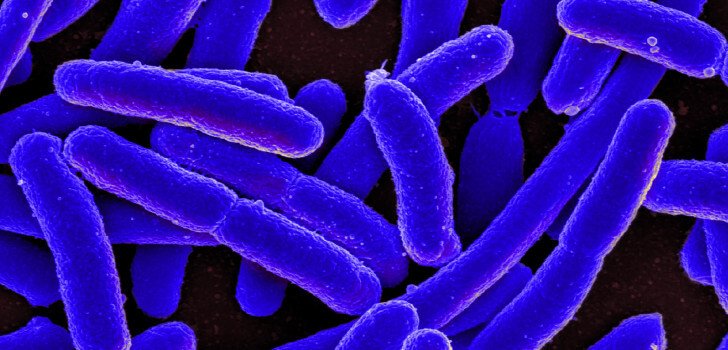Worry about the possibility of treatment-resistant super bacteria is continuing to grow, as scientists have recently identified a gene that makes bacteria immune to the polymyxin line of antibiotics. The polymyxin antibiotics are often used as the last line of defense against bacterial infections. This gene can be spread to different types of bacteria, and if it makes its way to strains that are already highly resistant to drugs, there could be a very serious crisis in the medical world.
The gene is called mcr-1, and it exists on genetic elements that are common to bacteria. This gene can be copied by bacteria and shared with other bacteria that are nearby. While scientists have found other genes that are used to gain resistance to polymyxin antibiotics in the past, this is the first such gene that can easily be spread to other bacteria.
Scientists first found the mcr-1 gene in E. coli bacteria that had been isolated from a pig. They also have found the gene in bacteria that was isolated from a small number of patients in Chinese hospitals. Lab tests showed that the mcr-1 gene could easily be copied between different strains of E. coli. In doing this, strains of bacteria that were once highly-sensitive to polymyxin antibiotics were transformed into stronger strains that could resist the treatment methods.
However, when the E. coli bacteria tried to bring the mcr-1 gene to different species of bacteria, it could not do so quite as easily. Researchers had to send electrical signals through the cells of the bacteria in order to make their membranes more permeable. Only then could the E. coli share the mcr-1 gene with other bacteria species. This suggests that the gene doesn’t necessarily transfer easily in natural environments.
That being said, the fact that the scientists were able to transfer the gene shows that it is indeed possible, even if it is somewhat unlikely. If this gene gets into certain strains of bacteria, the last line of defense for medical professionals could be thrown out the window. With absolutely no way to treat certain bacterial infections, the super powerful strains would have every opportunity to reproduce and thrive. It could very well create a disastrous epidemic.
For now, scientists will work to come up with new antibiotics so that this situation can be avoided. Luckily, there have been no known cases of the gene naturally spreading to particularly resilient strains of bacteria, so doctors still have some time to develop new medicines.
Stay Connected